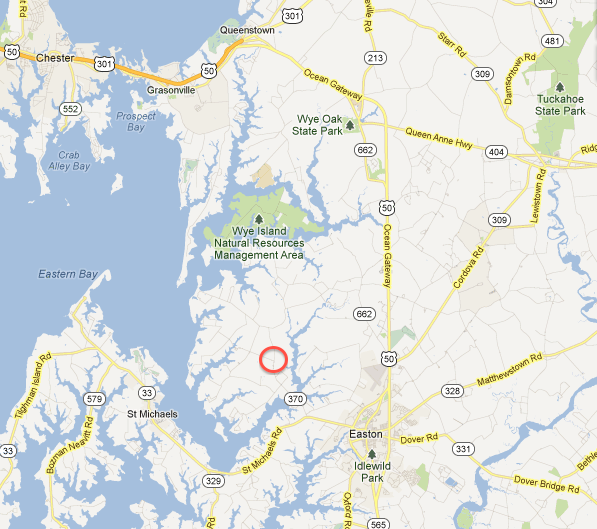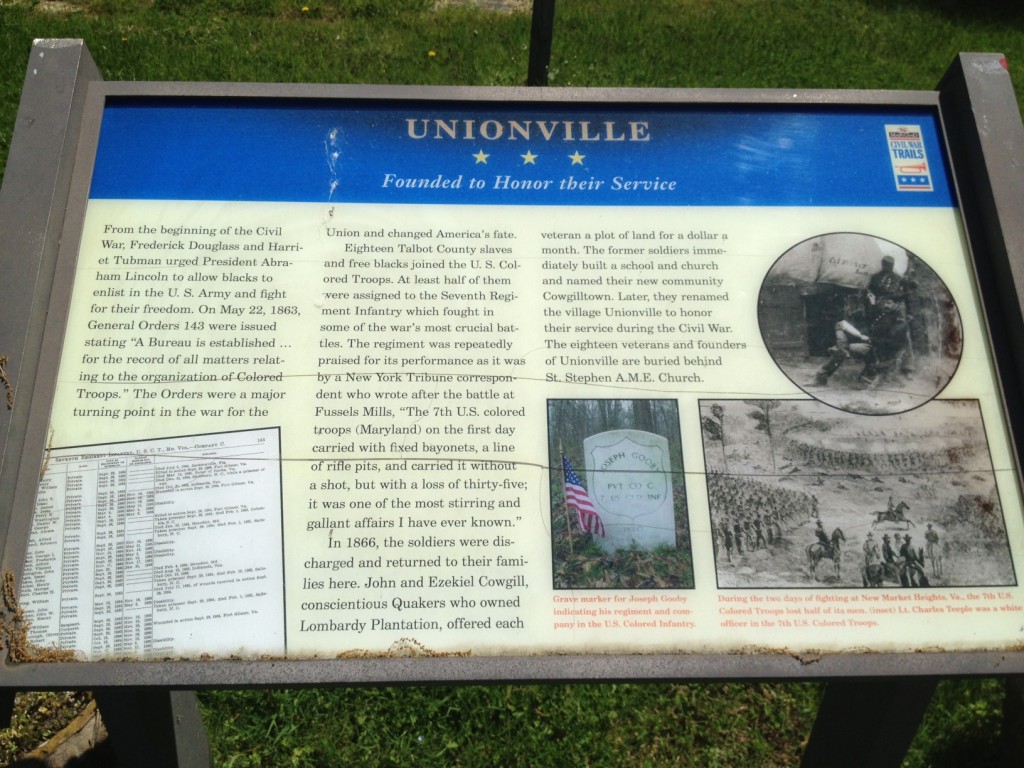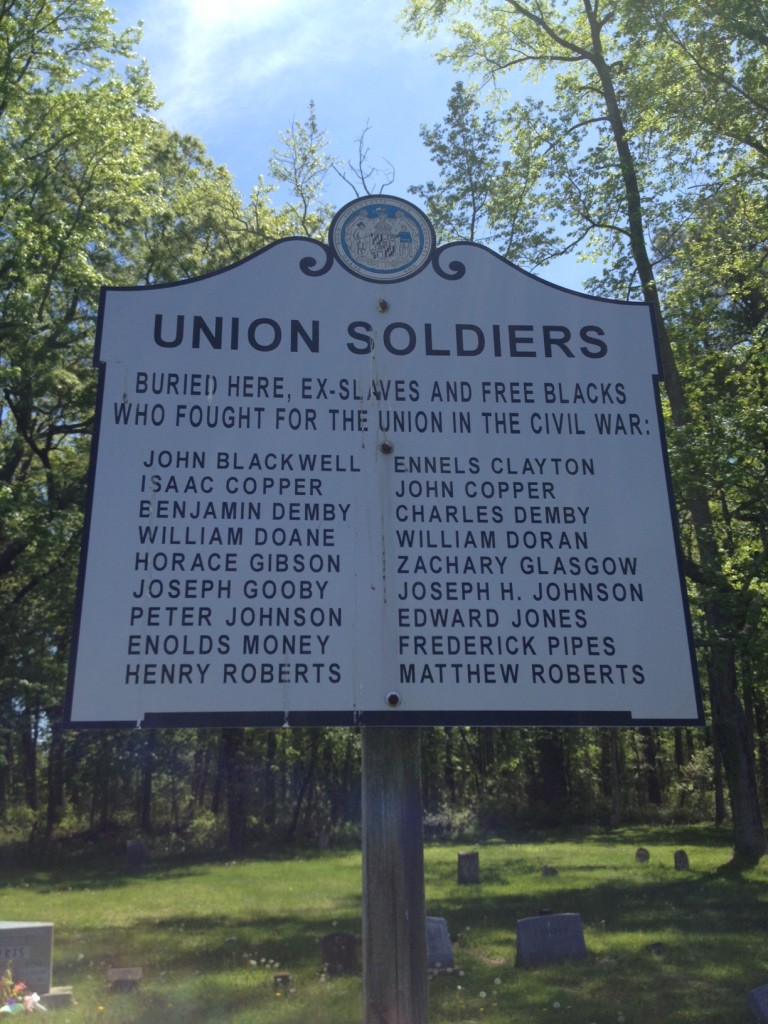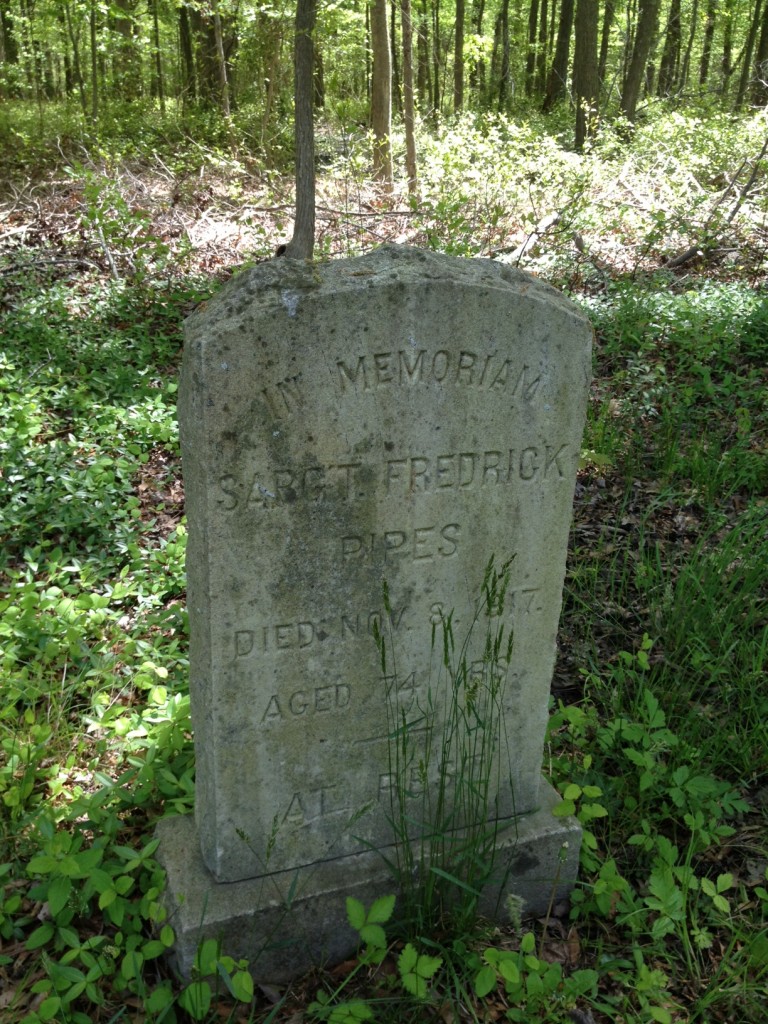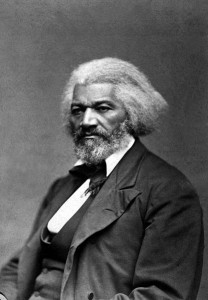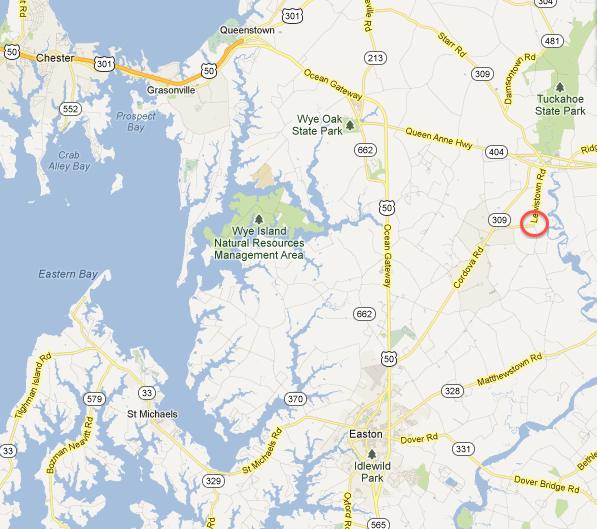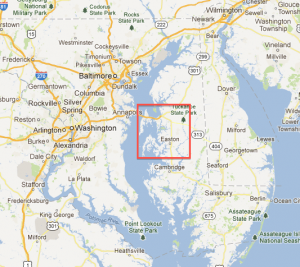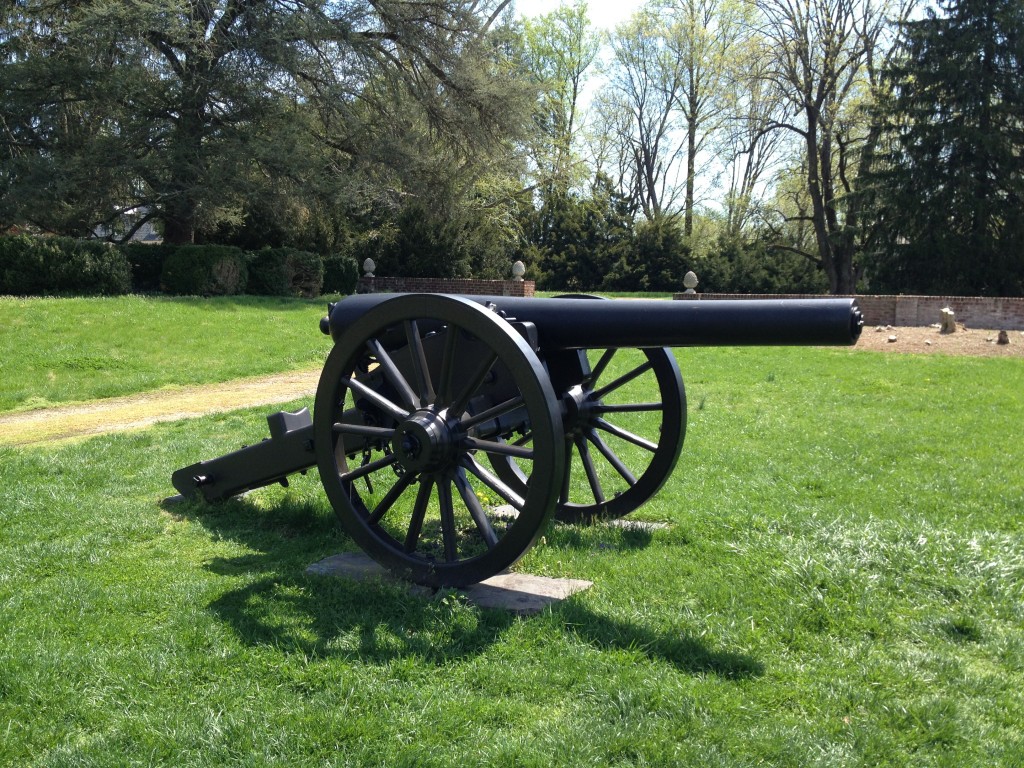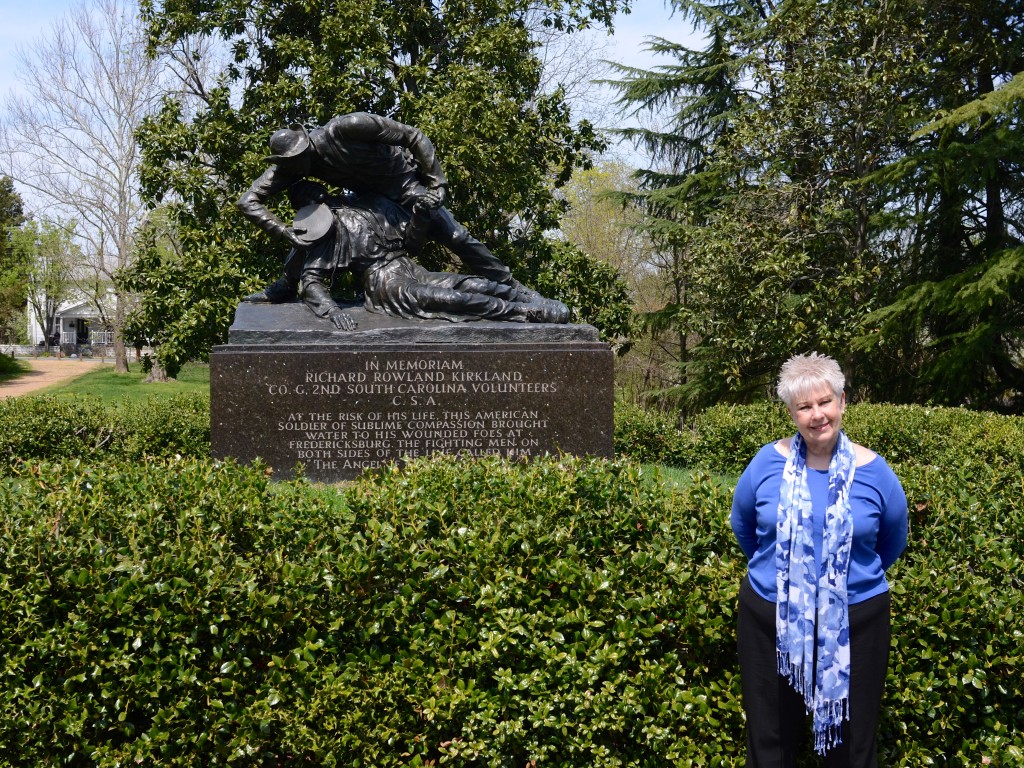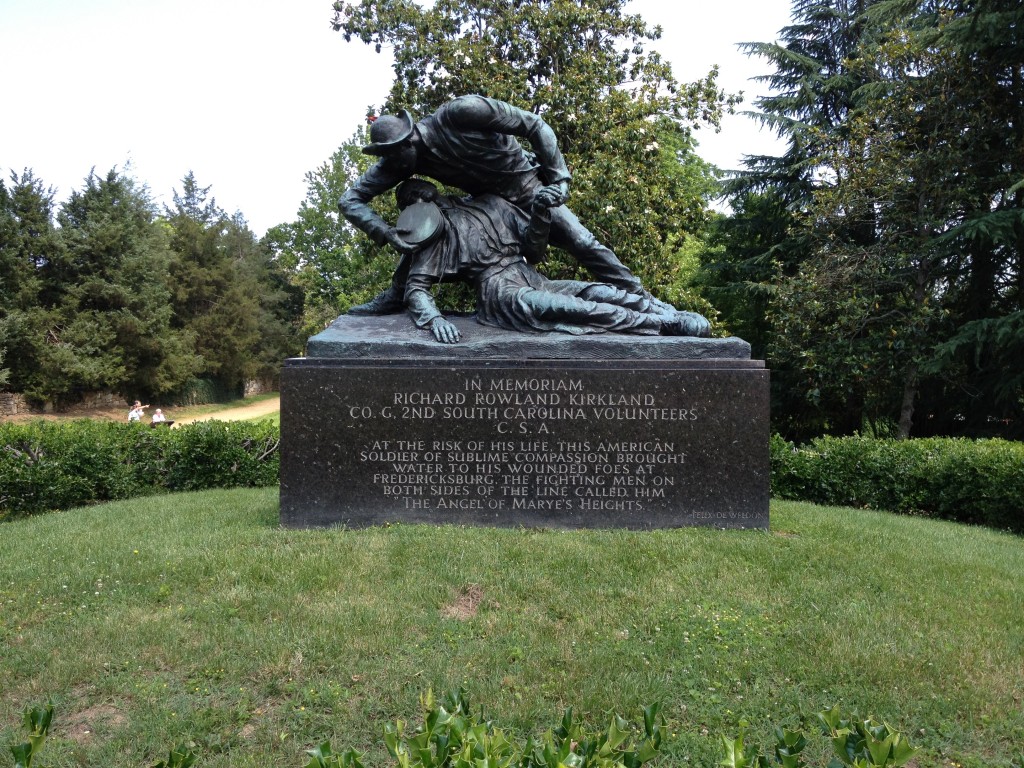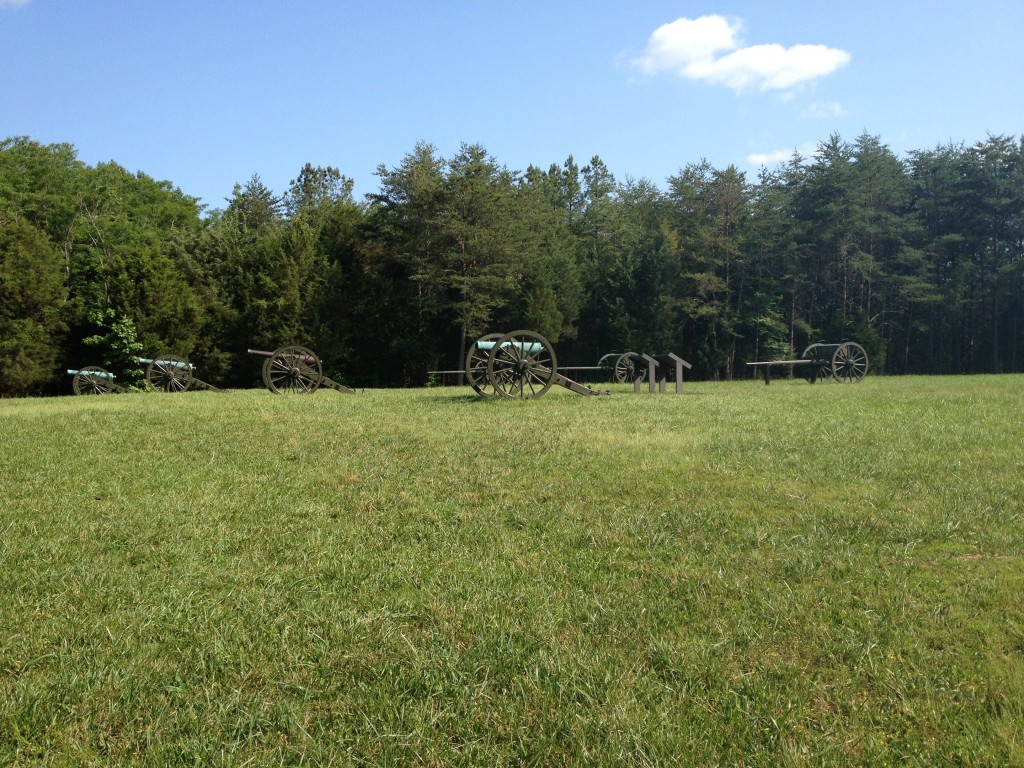Eastern Shore Tour: St. Michaels, MD
The final stop on my tour was also inspired by an entry at the HMDB: St. Michaels, MD. I saw a marker mentioning a series of attacks on the town by the British during the War of 1812, and I just had to see what that was all about.
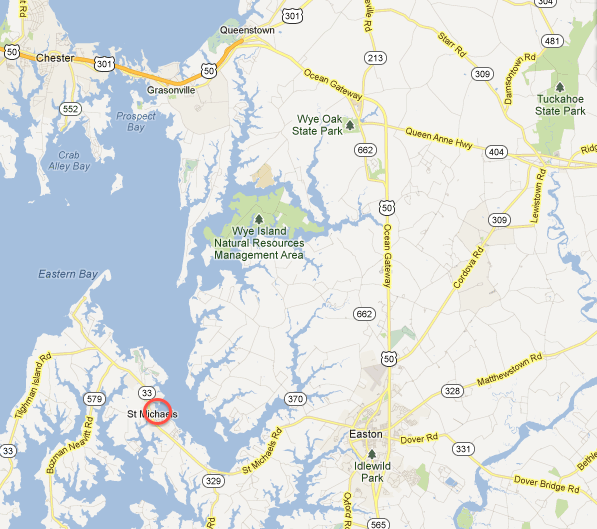
After finding a parking spot in town, I took a walk around. St. Michaels seems to be a weekend getaway town for the Baltimore / DC Metro area. There are a lot of bed & breakfasts, and a ton of shops and restaurants along the main drag of Maryland Route 33. With beautiful views along the river and harbor, even a scenic boat tour available, I can definitely see the appeal.

As far as history goes, the town is well-stocked. It bills itself as “The Town That Fooled the British”. Legend has it, during a nighttime bombardment by the British navy, the citizens hung lit lanterns up in trees to throw off the range of the British gunnery. This tactic was apparently successful. The militia also managed to halt two attempts by British land forces to advance up the peninsula.

The Chesapeake Bay Maritime Museum is there, too. While I didn’t go through it myself, it did look like it had a good variety of exhibits about life on the bay. There’s a small park along the harbor near the museum where a model of the type of boat that John Smith used to do the initial explorations of the Chesapeake Bay is moored. This particular boat was built for the 400th anniversary of the event 5 years ago, and retraced Smith’s historic route in celebration.
I walked down through town toward the town square – which doesn’t seem to be much of a “square” at all, actually – in search of an artillery piece that was used in the defense of the town back in 1813. Once I got there, I stumbled on to the St. Michaels Museum which was open for the first time this season. There was an assortment of small exhibits – mostly pieces of equipment from everyday life used by people in the area. The lady working as the hostess on Saturday was extremely welcoming and knowledgeable about the area. They expect this year to be a big one for them – with the bicentennial of the battles on the horizon this summer.

Of course the other draw in the town square is the cannon used in the defense of the town back on August 10, 1813. The weapon was placed here in 1913 during the centennial celebration of the battle. It’s a 6-pounder – so by my Civil War artillery standards, it’s a pea-shooter – and in extremely rough shape as you can probably tell by the photo. That being said, it may be the oldest artillery piece I’ve ever seen. The oldest cannon on the field at Gettysburg is a howitzer that was manufactured in 1837, so this piece has my personal record beat by probably at least 30 years. There’s an almost identical one across the street from the Revolution (so presumably even older), and in just as rough a condition.
There is one more point of interest on the square, pointed out by the nice lady at the museum:

Apparently Frederick Douglass spent a little time in St. Michaels before he moved north to escape slavery. The building above, currently used by the Masons, was a church in Douglass’ day, and he attended services in the upstairs room. And with that discovery, the circle was complete on my day of historical tourism.
I have to say, I was pleasantly surprised with the amount I was able to squeeze in. There’s a lot to explore over there, and it has raised my interest in learning more about the history of slavery in Maryland. There’s certainly a rich vein there – especially on the eastern shore.
So get out there and see what you can find in your own back yard. And keep an eye out for those roadside markers – you never know what you’ll discover!
